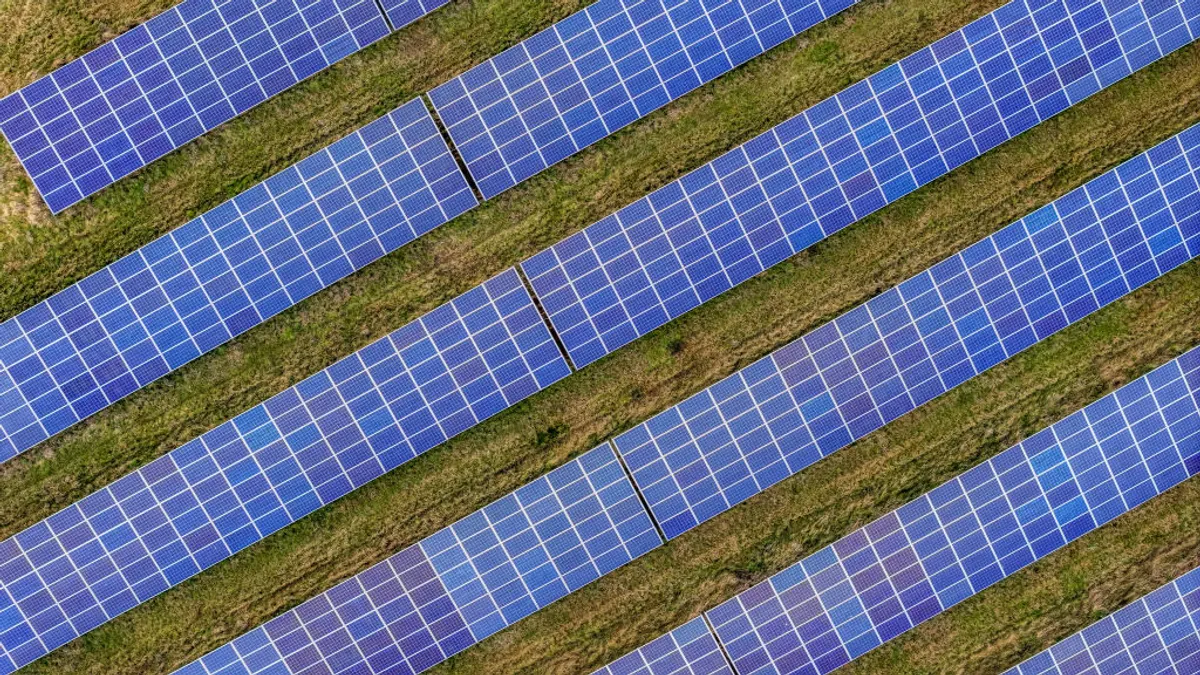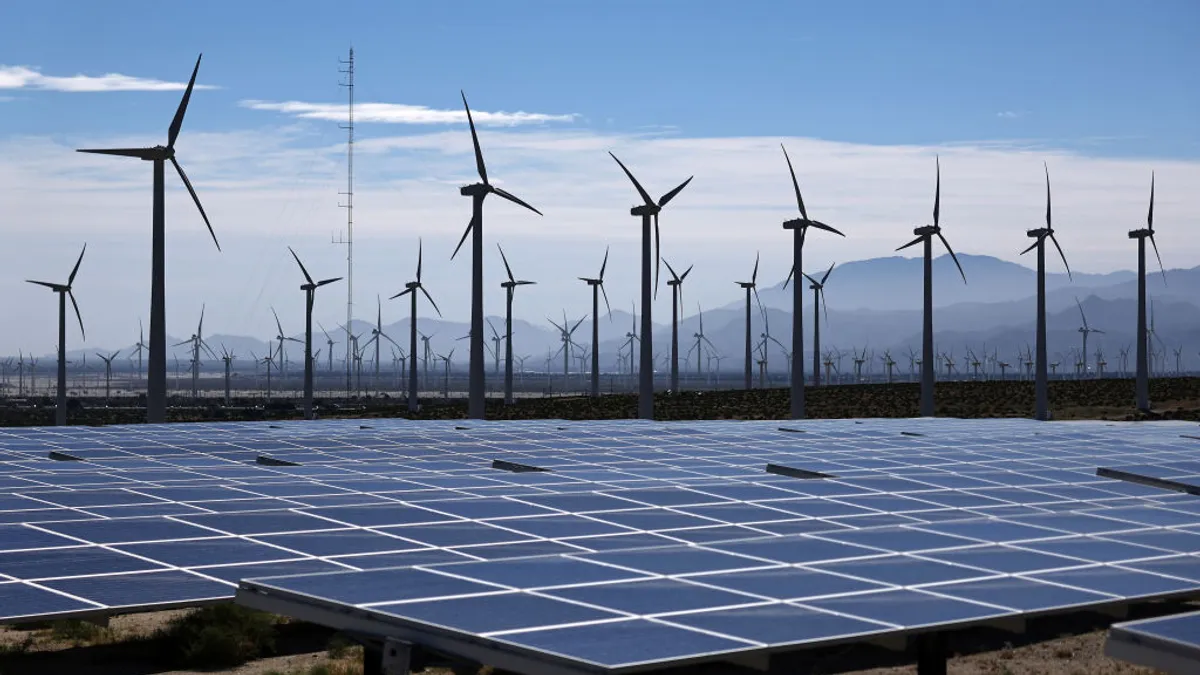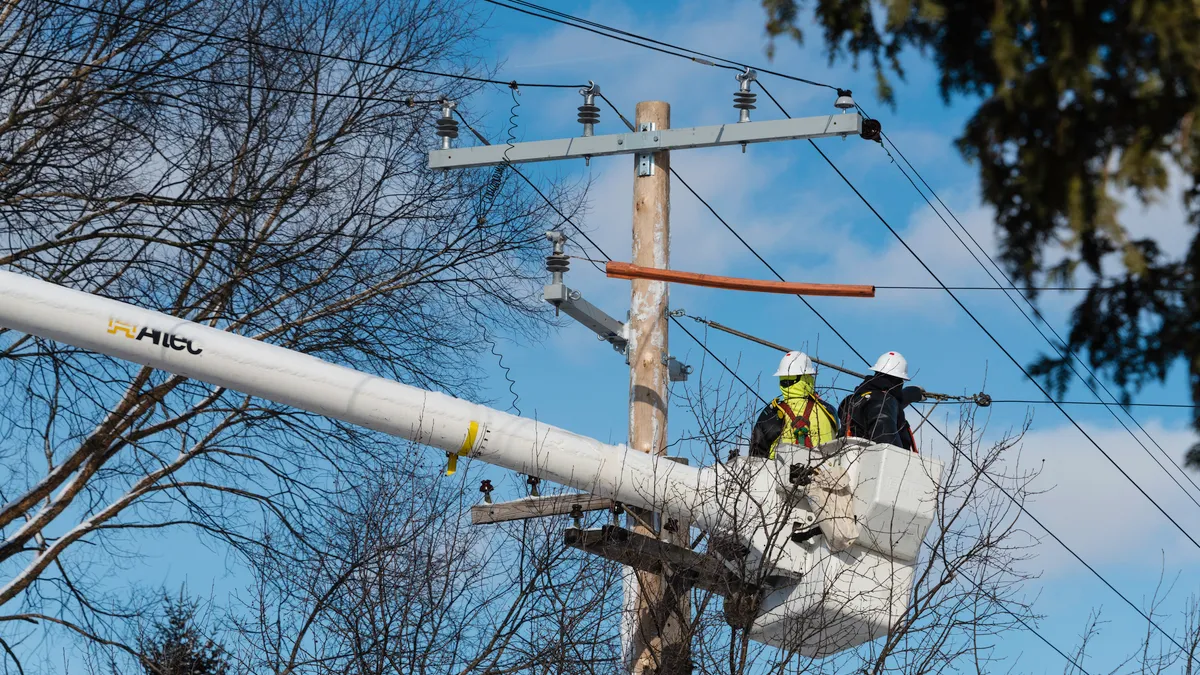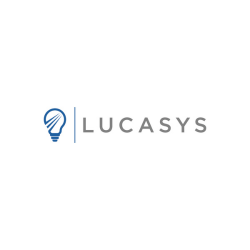If the presidential election hasn't supplied all the politics you can handle, fear not: There are several state-level questions in front of voters come November that will impact energy policy and keep you watching election returns all night.
None of them are drawing headlines like Clinton and Trump, of course, but there is some controversy. A handful of state utility commissions and ballot initiatives make up the undercard, and of course the main event features two radically opposed energy futures.
At the Presidential level, Donald Trump and Hillary Clinton's policies represent two starkly different visions of the United States' energy strategy and the jobs that go along with them. The Republican nominee would pull the teeth on environmental regulations, scrap the Clean Power Plan and open up more areas to fossil fuel production. His Democratic challenger wants to install a half million solar panels, focus on renewable energy, efficiency and lowering fossil fuel consumption.
From an employment standpoint, Trump wants to see the coal industry revitalized and expects the steel industry to grow as well, benefiting from cheaper power. Clinton's proposals would increase jobs in the renewable sector; she has called for establishment of a National Infrastructure Bank to leverage public and private capital to support infrastructure projects, including energy.
While no other race will impact national energy policy like the presidential contest, there are 50 state utility commissions plus the District of Columbia. Of those, 12 states allow citizens to elect public utility commissioners, while most give that appointment power to the governor. A pair of states, South Carolina and Virginia, call for state legislators to elect commissioners.
There are several public utility commission elections coming this November, as well as ballot initiatives focused directly on energy policy. When the election results start coming in, here's what to watch for.
Florida's solar ballot initiative
In Florida, voters will consider Amendment 1, a measure which would amend the state's constitution to establish that consumers "have the right to own or lease solar equipment installed on their property to generate electricity for their own use."
It sounds good for renewable energy, but advocates say the measure is a wolf in sheep's clothing. Critics say the "Rights of Electricity Consumers Regarding Solar Energy Choice," as the question is titled, would allow utilities to monopolize the solar industry. The constitutional amendment would allow state and local governments to impose fees "to ensure that consumers who do not choose to install solar are not required to subsidize the costs of backup power and electric grid access to those who do."
The measure is backed by a group called Consumers for Smart Solar, whose largest donors are Duke Energy and Florida Power & Light. According to Ballotpedia, the pair have given a combined $11 million to the group. Opposed to the measure are a wide range of environmental groups, including the Sierra Club, and several newspaper editorial boards have advised voters to approach the issue skeptically or vote against.
Even so, Amendment 1 appears likely to pass. A Florida Chamber of Commerce poll from last week finds almost two-thirds of voters support it. The Chamber is a supporter of the amendment, but several polls have backed those findings with even wider margins throughout the summer.
Louisiana in flux
In Louisiana, the five-member Public Service Commission is currently controlled by Republicans in a 3-2 split, but that balance is on the ballot next month. Commissioners represent districts, rather than being elected statewide, and two have terms that expire this year.
Commissioner Lambert Boissiere, III, a Democrat, is running unopposed in the 3rd district. But Commissioner Clyde Holloway, a Republican, is retiring. It's possible, however, that the his replacement won't actually be selected until December. Three candidates will run for Holloway's seat, but unless one of them receives more than 50% of the vote it will go to a runoff a month later.
The Democratic candidate, Mary Werner, is director and vice president of Sweet Lake Land & Oil Co. and has the endorsement of the Louisiana AFL-CIO. Republican Mike Francis founded and previously owned Francis Drilling Fluids and is a former chair the state's Republican party. Reldon Owens, also a Republican, is director of external relations for Diamond B Construction.
If no one wins a clear majority, the runoff election will be held Dec. 10. Two other commissioners are running for other, higher offices, which could open their seats after November. Should that happen, a special election will be scheduled for March.
No matter the twists the PSC elections take, Louisiana can be a state to watch for controversy. In 2014, the campaign manager for an insurgent PSC candidate had his car firebombed outside his house just weeks before the November vote. Mario Zervigon managed to get his family to safety, but his candidate, Forrest Bradley-Wright, lost to Commissioner Eric Skrmetta in a runoff. It remains unclear if the incident had any connection ot the campaign.
Arizona race could impact solar issues
Five candidates will vie for three Arizona Corporation Commission seats, but there is no chance Republicans will lose control. They hold all five seats, and only two Democrats are on the ballot this year. Two commissioners' terms are up and they are running for re-election, while another, Bob Stump, cannot run due to the state's prohibition on serving more than two consecutive terms. He could, however, run again in 2020.
Commissioners Robert Burns and Andy Tobin are both running, having survived primary challenges. Republican Boyd Dunn placed third in a primary and will also be on the ballot. Two Democrats, Tom Chabin and William Mundell, are also vying for seats. The top three vote-getters will be elected.
Dunn is a retired Superior Court judge and previously served as an assistant attorney general. Mundell is a private practice attorney and Chabin served in the legislature from 2007 to 2012. The two have combined some of their campaign efforts.
Solar has been a contentious issue in Arizona, and earlier this year Gov. Doug Ducey (R) helped arrange a settlement between net metering advocates and utilities that helped avoid competing ballot initiatives and instead resulted in negotiations.
Those talks, however, broke down in just one day, leaving the solar companies and state utilities to debate incentives before the commission. The two Democratic candidates have positioned themselves as allies of the solar industry, calling for Commissioner Tobin to resign over a conflict of interest that has since been resolved by the state legislature altering ethics laws for commissioners.
SolarCity, the nation's largest rooftop installer, has gotten involved as well, openly endorsing the re-election campaign of Commissioner Robert Burns and contributing over $660,000 to a third-party group supporting him.
Burns, seen as more friendly to solar than his colleagues, had called for both utilities and solar companies to stay out of the 2016 election, as accusations of campaign influence-peddling from the last cycle continue to dog the commission.
In August, the Commission voted 3-1 to block the allocation of funds for an ethics investigation sought by Burns into political contributions from utility companies in the 2014 ACC election. Critics say Arizona Public Service funneled $3.2 million in so-called dark money — contributed through nonprofits that do not have to disclose their donors — to Commissioners Doug Little and Tom Forese during that cycle. APS has neither confirmed nor denied the charge.
Prior to that vote, regulators delayed consideration of solar incentive changes until an ongoing value of solar docket returns more information for regulators. That could happen as early as this month, which may put important incentive decisions on the agenda for any new regulators elected in November.
A rematch in Montana
Montana is another state with a five-member Public Service Commission elected through districts, and another where Republicans cannot lose control. In District 2, Republican Tony O'Donnell will run unopposed after defeating incumbent Kirk Bushman by about 600 votes. No Democrats filed to run in the 2nd district.
The race in District 3 will feature incumbent Republican Roger Koopman, Democrat Pat Noonan and Independent Caron Cooper. Noonan was elected to Montana's House of Representatives in 2008, but cannot run again due to term limits. Cooper is an engineer and economist who campaigned on a platform focused efficiency and alternative energy.
In District 4, Democrat Gail Gutsche will try and unseat incumbent Bob Lake — who won the seat from her in 2012. Gutsche served four terms in the Montana House of Representatives, and in 2008 became the second woman elected to the PSC.
The state's commission recently made news when it temporarily suspended guaranteed rates for small solar projects, called for by the Public Utility Regulatory Policies Act, after a request of NorthWestern Energy.
Regulators are also expected to consider reforms to the state's net metering policies, as rooftop solar gains popularity in the state. A recent report on solar from a group of state lawmakers noted net metered systems have "increased 20% to 30% annually," meaning program caps could be hit in the early 2020s. The report recommended lifting the cap on net metered system size as lawmakers and regulators continue to debate incentive value.
Nevada poised to end utility monopoly
In Nevada, Gov. Sandoval has already shaken up the PUC, appointing two new commissioners last month that used to be his close aides. But there's still energy drama on the ballot regarding the monopoly status of the state's dominant utility, NV Energy.
A group called Nevadans for Affordable, Clean Energy Choice (NACEC) is supporting Question 3, which would amend the state constitution to require "an open, competitive retail electric energy market."
Customer choice has been a major issue in the state over the last year, pushed by large commercial customers. Casinos MGM Grand and Wynn Resorts agreed to pay more than $100 million between them to leave the NV Energy's to procure power on the open market, and others have been considering similar moves.
In July, data storage company Switch sued NV Energy and the Public Utilities Commission for not allowing it to seek better energy prices through an alternative supplier.
Lucas Foletta with NACEC told a local news station the measure will create jobs, lower rates and result in more renewable energy.
"You will see new product and service offering electricity product and service offerings. That will change the way people live,” he said.
The measure appears likely to pass. A Suffolk University Nevada poll in released last week found 72% of voters support deregulating the retail electricity market — more than support a measure to legalize marijuana (57%).
Earlier this year, Nevada voters looked to be set to vote on rooftop solar incentives as well, as an industry-supported group Bring Back Solar pushed a ballot proposal to reinstate retail rate net metering. The Nevada Supreme Court rejected that proposal, however, saying its language was misleading and that it should not qualify as a referendum.






















